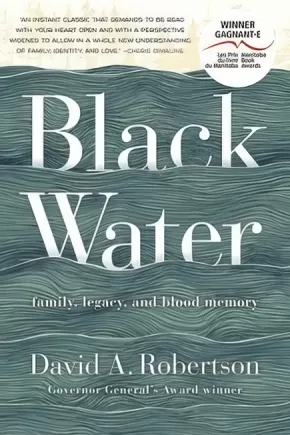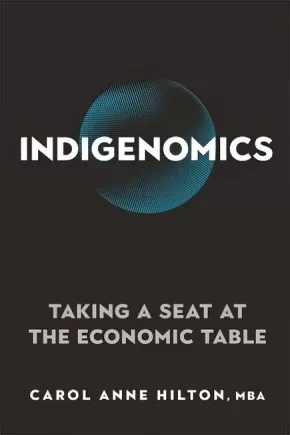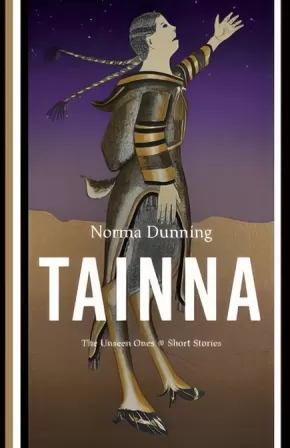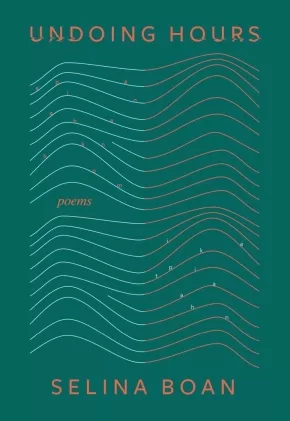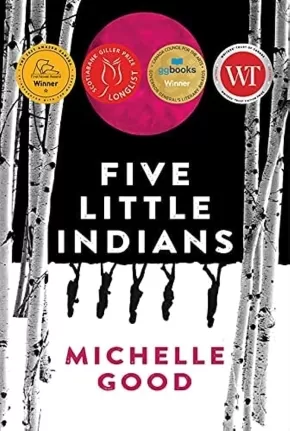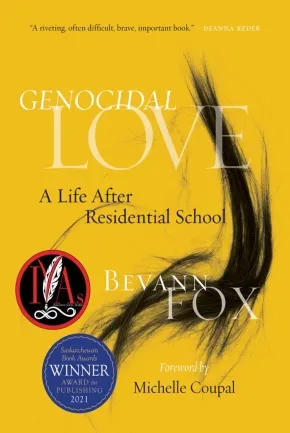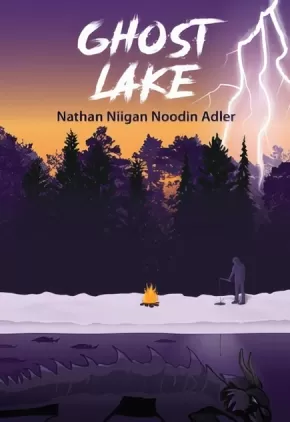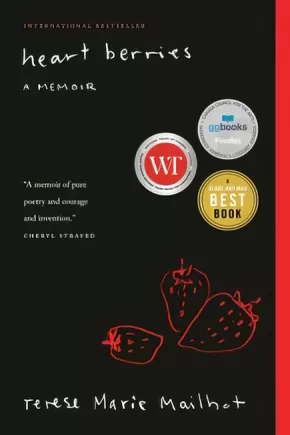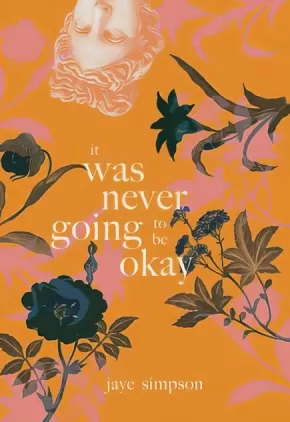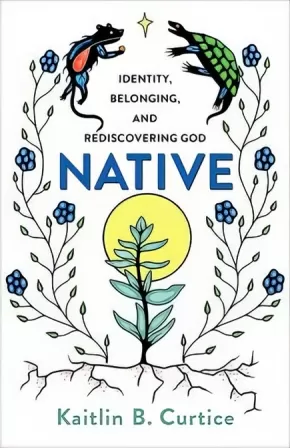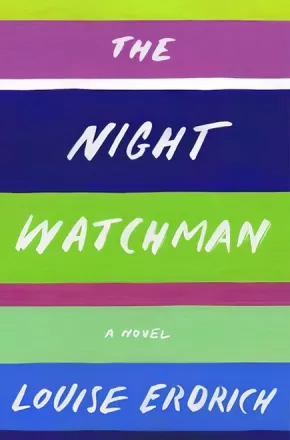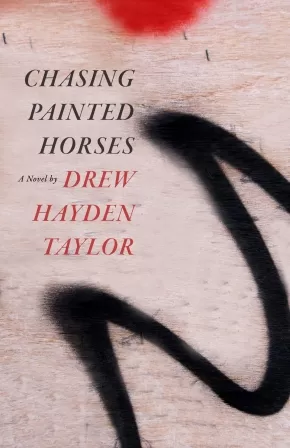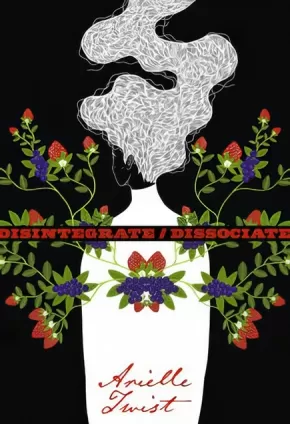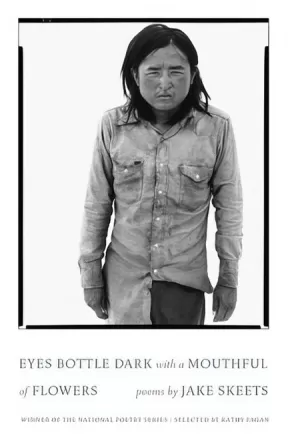Award-Winning
Synopsis:
A son who grew up away from his Indigenous culture takes his Cree father on a trip to their family's trapline, and finds that revisiting the past not only heals old wounds but creates a new future.
The son of a Cree father and a non-Indigenous mother, David A. Robertson was raised with virtually no knowledge or understanding of his family’s Indigenous roots. His father, Don, spent his early childhood on a trapline in the bush northeast of Norway House, Manitoba, where his first teach was the land. When his family was moved permanently to a nearby reserve, Don was not permitted to speak Cree at school unless in secret with his friends and lost the knowledge he had been gifted while living on his trapline. His mother, Beverly, grew up in a small Manitoba town with not a single Indigenous family in it. Then Don arrived, the new United Church minister, and they fell in love.
Structured around a father-son journey to the northern trapline where Robertson and his father will reclaim their connection to the land, Black Water is the story of another journey: a young man seeking to understand his father's story, to come to terms with his lifelong experience with anxiety, and to finally piece together his own blood memory, the parts of his identity that are woven into the fabric of his DNA.
Reviews
“An instant classic that demands to be read with your heart open and with a perspective widened to allow in a whole new understanding of family, identity, and love.” — Cherie Dimaline
“When someone lives their life in a good way, the Haisla call them handsome people. David A. Robertson’s biography is the perfect example of someone who takes care with his words and speaks respectfully; he tackles identity and racism, family bonds and breaks, with nuance and honesty. The power of this approach makes Black Water an essential and timely book.” — Eden Robinson, bestselling author of The Trickster Trilogy
Additional Information
288 pages | 5.31" x 8.00" | Paperback
Synopsis:
A deeply scouring poetic account of the residential school experience, and a deeply important indictment of colonialism in Canada.
Many of the poems in Louise Halfe's Burning in This Midnight Dream were written in response to the grim tide of emotions, memories, dreams and nightmares that arose in her as the Truth and Reconciliation process unfolded. In heart-wrenching detail, Halfe recalls the damage done to her parents, her family, herself. With fearlessly wrought verse, Halfe describes how the experience of the residential schools continues to haunt those who survive, and how the effects pass like a virus from one generation to the next. She asks us to consider the damage done to children taken from their families, to families mourning their children; damage done to entire communities and to ancient cultures.
Halfe's poetic voice soars in this incredibly moving collection as she digs deep to discover the root of her pain. Her images, created from the natural world, reveal the spiritual strength of her culture.
Originally published in 2016 by Coteau Books, Burning in This Midnight Dream won the Indigenous Peoples' Publishing award, the Rasmussen, Ramussen & Charowsky Indigenous Peoples' Writing award, the Saskatchewan Arts Board Poetry Award, the League of Canadian Poets' Raymond Souster Award, and the High Plains Book Award for Indigenous Writers. It was also the 2017 WILLA Literacy Award Finalist in Poetry. This new edition includes a new Afterword by Halfe.
Reviews
"Burning in this Midnight Dream honours the witness of a singular experience, Halfe's experience, that many others of kin and clan experienced. Halfe descends into personal and cultural darkness with the care of a master storyteller and gives story voice to mourning. By giving voice to shame, confusion, injustice Halfe begins to reclaim a history. It is the start of a larger dialogue than what is contained in the pages." --Raymond Souster Award jury citation
Additional Information
104 pages | 5.75" x 8.50" | 8 illustrations
Synopsis:
Igniting the $100 billion Indigenous economy
It is time. It is time to increase the visibility, role, and responsibility of the emerging modern Indigenous economy and the people involved. This is the foundation for economic reconciliation. This is Indigenomics.
Indigenomics lays out the tenets of the emerging Indigenous economy, built around relationships, multigenerational stewardship of resources, and care for all. Highlights include:
- The ongoing power shift and rise of the modern Indigenous economy
- Voices of leading Indigenous business leaders
- The unfolding story in the law courts that is testing Canada's relationship with Indigenous peoples
- Exposure of the false media narrative of Indigenous dependency
- A new narrative, rooted in the reality on the ground, that Indigenous peoples are economic powerhouses
- On the ground examples of the emerging Indigenous economy.
Indigenomics calls for a new model of development, one that advances Indigenous self-determination, collective well-being, and reconciliation. This is vital reading for business leaders and entrepreneurs, Indigenous organizations and nations, governments and policymakers, and economists.
Awards
- 2022 First Nations Community Reads Award
Educator Information
This book is centered within the United Nations Declaration on the Rights of Indigenous Peoples (UNDRIP).
Indigenomics is a new topic and a previously unpublished contribution to new economic thought.
This book is an important work in the emerging modern Indigenous economy. It is a guide to fully realizing the potential of the emerging Indigenous economy. It lays out the emerging power shift and rise of Indigenous economic empowerment. It acknowledges the unfolding story shaping Canada through the law courts that is testing the foundation of the Crown relationship with Indigenous peoples.
Includes interviews with six business leaders, all exceptional in their field.
Additional Information
272 pages | 6.00" x 9.00" | 20 b&w illustrations
Synopsis:
Drawing on both lived experience and cultural memory, Norma Dunning brings together six powerful new short stories centred on modern-day Inuk characters in Tainna. Ranging from homeless to extravagantly wealthy, from spiritual to jaded, young to elderly, and even from alive to deceased, Dunning’s characters are united by shared feelings of alienation, displacement and loneliness resulting from their experiences in southern Canada.
In Tainna—meaning “the unseen ones” and pronounced Da‑e‑nn‑a—a fraught reunion between sisters Sila and Amak ends in an uneasy understanding. From the spirit realm, Chevy Bass watches over his imperilled grandson, Kunak. And in the title story, the broken-hearted Bunny wanders onto a golf course on a freezing night, when a flock of geese stand vigil until her body is discovered by a kind stranger.
Norma Dunning’s masterful storytelling uses humour and incisive detail to create compelling characters who discover themselves in a hostile land where prejudice, misogyny and inequity are most often found hidden in plain sight. There, they must rely on their wits, artistic talent, senses of humour and spirituality for survival; and there, too, they find solace in shining moments of reconnection with their families and communities.
Awards
- 2021 Governor General's Literary Award for English-language fiction
Additional Information
160 pages | 5.50" x 8.50"
Synopsis:
Selina Boan’s debut poetry collection, Undoing Hours, considers the various ways we undo, inherit, reclaim and (re)learn. Boan’s poems emphasize sound and breath. They tell stories of meeting family, of experiencing love and heartbreak, and of learning new ways to express and understand the world around her through nêhiyawêwin.
As a settler and urban nehiyaw who grew up disconnected from her father’s family and community, Boan turns to language as one way to challenge the impact of assimilation policies and colonization on her own being and the landscapes she inhabits. Exploring the nexus of language and power, the effects of which are both far-reaching and deeply intimate, these poems consider the ways language impacts the way we view and construct the world around us. Boan also explores what it means to be a white settler–nehiyaw woman actively building community and working to ground herself through language and relationships. Boan writes from a place of linguistic tension, tenderness and care, creating space to ask questions and to imagine intimate decolonial futures.
Awards
- 2022 Indigenous Voices Award for published poetry in English.
Reviews
"Reading Undoing Hours feels like going home, where home, much like memory, is a place continually under construction. This is a work at once exquisite and particular in its offering while at the same time striking us as expansive, prepossessing and true." — Liz Howard
"Selina Boan’s Undoing Hours is going to be so very important to those who are “learning to name” inside multiple languages. It is about embodying the knowledge of one’s ancestry as well as about love as it collides with grief and longing and hope. It is about standing firmly inside a single hour and being brave enough to want another. It is about learning Cree, about how a word in a language older than the world might, in the end, redeem us. And because of this, it is also about miracles. I can’t wait to read it again and again and again." — Billy-Ray Belcourt
Additional Information
96 pages | 5.50" x 8.00"
Synopsis:
Taken from their families when they are very small and sent to a remote, church-run residential school, Kenny, Lucy, Clara, Howie and Maisie are barely out of childhood when they are finally released after years of detention.
Alone and without any skills, support or families, the teens find their way to the seedy and foreign world of Downtown Eastside Vancouver, where they cling together, striving to find a place of safety and belonging in a world that doesn’t want them. The paths of the five friends cross and crisscross over the decades as they struggle to overcome, or at least forget, the trauma they endured during their years at the Mission.
Fuelled by rage and furious with God, Clara finds her way into the dangerous, highly charged world of the American Indian Movement. Maisie internalizes her pain and continually places herself in dangerous situations. Famous for his daring escapes from the school, Kenny can’t stop running and moves restlessly from job to job—through fishing grounds, orchards and logging camps—trying to outrun his memories and his addiction. Lucy finds peace in motherhood and nurtures a secret compulsive disorder as she waits for Kenny to return to the life they once hoped to share together. After almost beating one of his tormentors to death, Howie serves time in prison, then tries once again to re-enter society and begin life anew.
With compassion and insight, Five Little Indians chronicles the desperate quest of these residential school survivors to come to terms with their past and, ultimately, find a way forward.
Awards
- Amazon Canada First Novel Award
- 2020 Governor General's Literary Award for English-language fiction
- 2022 Canada Reads Winner
Educator Information
Winner of the 2018 HarperCollins/UBC Price for Best New Fiction, Michelle Good's Five Little Indians is told from alternating points of view of five former residential school students as they struggle to survive in 1960s Vancouver.
Additional Information
304 pages | 6.00" x 9.00"
Synopsis:
How can we heal in the face of trauma? How can we transform intergenerational pain into a passion for community and healing?
Presenting herself as “Myrtle,” residential school survivor and Indigenous television personality Bevann Fox explores essential questions by recounting her life through fiction. She shares memories of an early childhood filled with love with her grandparents—until she is sent to residential school at the age of seven. Her horrific experiences of abuse there left her without a voice, timid and nervous, never sure, never trusting, affecting her romantic relationships and family bonds for years to come.
This is the story of Myrtle battling to recover her voice. Genocidal Love is a powerful confirmation of the long-lasting consequences of residential school violence —and a moving story of finding a path towards healing.
Awards
- 2021 Indigenous Voices Awards winner for Published Prose in English: Creative Nonfiction and Life-Writing
Reviews
“A riveting, often difficult, brave, important book. ” —Deanna Reder, Chair, Department of Indigenous Studies, Simon Fraser University
“A riveting and courageous reflection. . . . Genocidal Love is unique in its detailed account of the often re-traumatizing effects of the legal and bureaucratic barriers of compensation programs predating the Truth and Reconciliation Commission. ” —Jesse Rae Archibald-Barber, editor of kisiskâciwan and co-editor of Performing Turtle Island
“Fox tears beauty from the jaws of genocide, daring to claim love beyond settler imaginings—love that nurtures decolonial futures and makes possible a more just world. ”—Sam McKegney, author of Magic Weapons and Masculindians
Educator Information
A forward from Michelle Coupal explains more about "Genocidal Love—a story that Bevann tells about herself outside the boundaries of what constitutes fiction and non-fiction".
Additional Information
256 pages | 5.00" x 7.00"
Synopsis:
In Ojibwe cosmology there are thirteen moons...
And in the pages of Ghost Lake are thirteen stories featuring an interrelated cast of characters and their brushes with the mysterious. Issa lives in fear of having her secret discovered, Aanzheyaawin haunts the roads seeking vengeance, Zaude searches for clues to her brother’s death, Garion wrestles with his sexual inclinations, Fanon struggles against an unexpected winter storm, Kylie fights to make it back to shore, Eadie and Mushkeg share a magical night, Tyner faces brutal violence, and Tyler, Clay, and Dare must make amends to the spirits before it’s too late. On the northern Ontario reserve of Ghost Lake the precolonial past is not so distant, and nothing is ever truly lost or destroyed. Because the land remembers.
Awards
- 2021 Indigenous Voices Awards winner for Published Prose in English: Fiction
Reviews
“Adler gifts us with this collection of intense life and death stories that straddle the worlds of the everyday and the fantastic. These stories challenge the notion of default reality and Adler crafts them with a deft hand.”—Michelle Good, author of Five Little Indians
“Ghost Lake is the border to all things known—but not in the way wider society conceives them: there is no lighthouse imposing its dichotomy on the darkness. It invites recovery and connection from its characters beautifully; story, memory, and relationship build the landscape for them to walk on. The people of Ghost Lake move through experiences with a curiosity and bravery that I hope all readers have—where there are no experts to place rules on a community’s desire to remember. We need more collections like this.”—Tyler Pennock, author of Bones
“A memorable, necessary read, Nathan Adler’s remarkable collection Ghost Lake delves into the life-changing passages of love and loss, revenge and redemption, survival and discovery. His vital, authentic characters journey through a world in which the boundary between the so-called real and the illusory—the realm of mysteries, spirits, and myths—is itself revealed to be the illusion. These imaginative, expertly crafted stories are guaranteed to illuminate and stir, to challenge and entertain.” —Daniel Scott Tysdal, author of The Writing Moment: A Practical Guide to Creating Poems
Educator Information
An interconnected collection of stories set on the fictional Northern Ontario Reserve of Ghost Lake, featuring a cast of interrelated characters and their encounters with the supernatural and other phenomenon, with themes ranging from love, loss, and relationships, to the meaning of monstrosity, violence, tragedy, and justice.
Ghost Lake is the sequel to Nathan Adler's debut horror novel, Wrist.
Pyromaniacs, vigilantes, mysterious phenomena, prehistoric beasts, cryptid species, grave robbers and ghosts… the stories of Ghost Lake feature a cast of interrelated characters and their brushes with the supernatural, creatures of Ojibwe cosmology, the Spirit World, and with monsters, both human and otherwise. Nathan Niigan Noodin Adler shows us that the precolonial past is not so distant, that history informs the present, and nothing is ever truly lost or destroyed, because the land remembers.
Additional Information
320 pages | 5.50" x 8.00"
Synopsis:
Guileless and refreshingly honest, Terese Mailhot's debut memoir chronicles her struggle to balance the beauty of her Native heritage with the often desperate and chaotic reality of life on the reservation.
Heart Berries is a powerful, poetic memoir of a woman's coming of age on the Seabird Island Indian Reservation in British Columbia. Having survived a profoundly dysfunctional upbringing only to find herself hospitalized and facing a dual diagnosis of Post Traumatic Stress Disorder and Bipolar II, Terese Mailhot is given a notebook and begins to write her way out of trauma. The triumphant result is Heart Berries, a memorial for Mailhot's mother, a social worker and activist who had a thing for prisoners; a story of reconciliation with her father--an abusive drunk and a brilliant artist--who was murdered under mysterious circumstances; and an elegy on how difficult it is to love someone while dragging the long shadows of shame.
Mailhot "trusts the reader to understand that memory isn't exact, but melded to imagination, pain and what we can bring ourselves to accept." Her unique and at times unsettling voice graphically illustrates her mental state. As she writes, she discovers her own true voice, seizes control of her story and, in so doing, reestablishes her connection to her family, to her people and to her place in the world.
Educator Information
This book is available in French: Petite Femme Montagne
Additional Information
144 pages | 5.00" x 7.50" | Paperback
Synopsis:
it was never going to be okay is a collection of poetry and prose exploring the intimacies of understanding intergenerational trauma, Indigeneity and queerness, while addressing urban Indigenous diaspora and breaking down the limitations of sexual understanding as a trans woman. As a way to move from the linear timeline of healing and coming to terms with how trauma does not exist in subsequent happenings, it was never going to be okay tries to break down years of silence in simpson’s debut collection of poetry:
i am five
my sisters are saying boy
i do not know what the word means but—
i am bruised into knowing it: the blunt b,
the hollowness of the o, the blade of y
Awards
- 2021 Indigenous Voices Awards winner for Published Poetry in English.
Reviews
"jaye simpson’s it was never going to be okay is a symphony of unrelenting rage and undying hope that beckons to be heard, seen and held with the utmost care. In this stunning debut they speak truths to the complexities of the body, land and memory through an intimately structured and poignant cadence. This collection will leave you longing for more and, in the legacy of trans Indigenous literature, change lives." — Arielle Twist, author of Disintegrate/Dissociate
"jaye simpson marshals a vast economy of images because their subject matter is as large as an entire country, as the colonial past, as structures of oppression and indifference that undermine Indigenous and trans livability. At the level of craft, simpson makes use of the codes of tragedy, polemic, autobiography and the lyric artfully and powerfully. By the book’s end, buoyed by its final beautiful and tender section, a kind of love letter to trans Indigenous peoples, one is called on to build a new world. In this way, jaye simpson's poetry is a vital artifact of a decolonial future!" — Billy-Ray Belcourt, 2018 Griffin Poetry Prize winner for This Wound Is a World
Additional Information
112 pages | 5.50" x 8.00"
Synopsis:
Native is about identity, soul-searching, and the never-ending journey of finding ourselves and finding God. As both a citizen of the Potawatomi Nation and a Christian, Kaitlin Curtice offers a unique perspective on these topics. In this book, she shows how reconnecting with her Potawatomi identity both informs and challenges her faith.
Curtice draws on her personal journey, poetry, imagery, and stories of the Potawatomi people to address themes at the forefront of today's discussions of faith and culture in a positive and constructive way. She encourages us to embrace our own origins and to share and listen to each other's stories so we can build a more inclusive and diverse future. Each of our stories matters for the church to be truly whole. As Curtice shares what it means to experience her faith through the lens of her Indigenous heritage, she reveals that a vibrant spirituality has its origins in identity, belonging, and a sense of place.
Awards
- Foreword INDIES 2020 Book of the Year Award (SILVER Winner for Religion)
- 2021 Georgia Author of the Year Award (Inspirational)
- 2021 Midwest Book Award (Silver Winner for Religion/Philosophy)
Reviews
"It isn't very often that a book about identity--let alone dismantling white supremacy and patriarchy--reads like a poem, but that's Kaitlin. She is thoughtful decolonization set to music and wrapped in love. Her story is compelling and healing, and her path is an invitation to all of us, even as she challenges our assumptions and imaginations. I treasure each of these sacred words, rooted in her story and in the larger stories we still carry. This book can make all of us both more free and more connected to one another."- Sarah Bessey, author of Miracles and Other Reasonable Things and Jesus Feminist
"In the pages of Native, Kaitlin B. Curtice is a poet, professor, storyteller, and unapologetic truth-teller. This book is required reading for all those committed to learning the truth about the land we live on and the institutions we live inside of. It both stretched me and comforted me--it called me out and called me home. Curtice is a vital artist and teacher, and Native is her most important offering yet. It will remain on my shelf forever." - Glennon Doyle, author of Untamed and founder of Together Rising
"There is no doubt that Christianity has been the handmaiden to the destruction of Indigenous nations. Native is more than Kaitlin Curtice's testament. It is an indigenization of faith and, more important, a moral call not only for the Christian church but for everyone to reckon with the genocidal legacies of US settler colonialism and African slavery. As she humbly puts it, decolonization is an invitation and a gift for humankind to re-establish correct relations with each other--and the earth." - Nick Estes, cofounder of The Red Nation and author of Our History Is the Future: Standing Rock versus the Dakota Access Pipeline, and the Long Tradition of Indigenous Resistance
"Because Curtice's writing is so personal, engaging, hospitable, and invitational, readers quickly come alongside of her, accompanying her in her journey while beginning their own. She weaves stories of journeying, wandering, and creation into the structure of her writing, and invites and then challenges her readers to unpack the hard topics of white supremacy, racism, and European settler colonization that have affected each one of us since the Europeans first arrived in this land determined to strip Native Peoples of every trace of their being--personhood, identity, land, language, culture, and society. . . . Native: Identity, Belonging, and Discovering God serves as a guidebook for us to participate in God's reconciliation with God, with each other, and with ourselves."- Susie Carter-Wiggins, Presbyterian Outlook
Educator Information
Table of Contents
Introduction
Part 1: Beginnings
1. Land and Water
2. Journeying Stories
3. Creation Stories
4. My Own Beginning
Part 2: Searching for Meaning
5. The Problem of Whiteness
6. Stereotypes and Survival
7. A Heart Language
8. Gifts of Prayer
Part 3: The Struggle for Truth
9. Ceremony
10. Ancestors
11. Self, Examined
12. The Pain of Church Spaces
Part 4: Working
13. Wake-Up Calls
14. When the Church Gets to Work
15. Keeping Watch
16. Fighting Invisibility
Part 5: Bearing Fruit in a New World
17. Finding One Another
18. The Future of Decolonization
19. Returning
20. A New World for Our Children
Afterword
Additional Information
208 pages | 5.50" x 8.40" | Paperback
Synopsis:
Based on the extraordinary life of National Book Award-winning author Louise Erdrich’s grandfather who worked as a night watchman and carried the fight against Native dispossession from rural North Dakota all the way to Washington, D.C., this powerful novel explores themes of love and death with lightness and gravity and unfolds with the elegant prose, sly humor, and depth of feeling of a master craftsman.
Thomas Wazhashk is the night watchman at the jewel bearing plant, the first factory located near the Turtle Mountain Reservation in rural North Dakota. He is also a Chippewa Council member who is trying to understand the consequences of a new “emancipation” bill on its way to the floor of the United States Congress. It is 1953 and he and the other council members know the bill isn’t about freedom; Congress is fed up with Indians. The bill is a “termination” that threatens the rights of Native Americans to their land and their very identity. How can the government abandon treaties made in good faith with Native Americans “for as long as the grasses shall grow, and the rivers run”?
Since graduating high school, Pixie Paranteau has insisted that everyone call her Patrice. Unlike most of the girls on the reservation, Patrice, the class valedictorian, has no desire to wear herself down with a husband and kids. She makes jewel bearings at the plant, a job that barely pays her enough to support her mother and brother. Patrice’s shameful alcoholic father returns home sporadically to terrorize his wife and children and bully her for money. But Patrice needs every penny to follow her beloved older sister, Vera, who moved to the big city of Minneapolis. Vera may have disappeared; she hasn’t been in touch in months, and is rumored to have had a baby. Determined to find Vera and her child, Patrice makes a fateful trip to Minnesota that introduces her to unexpected forms of exploitation and violence, and endangers her life.
Thomas and Patrice live in this impoverished reservation community along with young Chippewa boxer Wood Mountain and his mother Juggie Blue, her niece and Patrice’s best friend Valentine, and Stack Barnes, the white high school math teacher and boxing coach who is hopelessly in love with Patrice.
In The Night Watchman, Louise Erdrich creates a fictional world populated with memorable characters who are forced to grapple with the worst and best impulses of human nature. Illuminating the loves and lives, the desires and ambitions of these characters with compassion, wit, and intelligence, The Night Watchman is a majestic work of fiction from this revered cultural treasure.
Awards
- 2021 Pulitzer Prize for Fiction
Additional Information
464 Pages | 6" x 9"
|
|
Synopsis:
Chasing Painted Horses has a magical, fable-like quality. It is the story of four unlikely friends who live in Otter Lake, a reserve north of Toronto. Ralph and his sister, Shelley, live with their parents. On the cusp of becoming teenagers, they and their friend William befriend an odd little girl, from a dysfunctional family. Danielle, a timid 10-year-old girl, draws an amazing, arresting image of a horse that draws her loose group of friends into her fantasy world. But those friends are not ready for what that horse may mean or represent. It represents everything that’s wrong in the girl’s life and everything she wished it could be. And the trio who meet her and witness the creation of the horse, are left trying to figure out what the horse means to the girl, and later to them. And how to help the shy little girl.
Awards
- Winner of the 2020-2021 First Nation Communities Read: Indigenous Literature Award
Additional Information
6.00" x 9.00"
Synopsis:
In her powerful debut collection of poetry, Arielle Twist unravels the complexities of human relationships after death and metamorphosis. In these spare yet powerful poems, she explores, with both rage and tenderness, the parameters of grief, trauma, displacement, and identity. Weaving together a past made murky by uncertainty and a present which exists in multitudes, Arielle Twist poetically navigates through what it means to be an Indigenous trans woman, discovering the possibilities of a hopeful future and a transcendent, beautiful path to regaining softness.
Awards
- 2020 Indigenous Voices Awards Winner for Published Poetry in English
Additional Information
|
Synopsis:
Selected by Kathy Fagan as a winner of the 2018 National Poetry Series, Eyes Bottle Dark with a Mouthful of Flowers is a debut collection of poems by a dazzling geologist of queer eros.
Drunktown, New Mexico, is a place where men “only touch when they fuck in a backseat.” Its landscape is scarred by violence: done to it, done on it, done for it. Under the cover of deepest night, sleeping men are run over by trucks. Navajo bodies are deserted in fields. Resources are extracted. Lines are crossed. Men communicate through beatings, and football, and sex. In this place, “the closest men become is when they are covered in blood / or nothing at all.”
But if Jake Skeets’s collection is an unflinching portrait of the actual west, it is also a fierce reclamation of a living place—full of beauty as well as brutality, whose shadows are equally capable of protecting encounters between boys learning to become, and to love, men. Its landscapes are ravaged, but they are also startlingly lush with cacti, yarrow, larkspur, sagebrush. And even their scars are made newly tender when mapped onto the lover’s body: A spine becomes a railroad.“Veins burst oil, elk black.” And “becoming a man / means knowing how to become charcoal.” Rooted in Navajo history and thought, these poems show what has been brewing in an often forgotten part of the American literary landscape, an important language, beautiful and bone dense.
Sculptural, ambitious, and defiantly vulnerable, the poems of Eyes Bottle Dark with a Mouthful of Flowers are coal that remains coal, despite the forces that conspire for diamond, for electricity.
Reviews
“Jake Skeets writes with such sparse yet full beauty, you sometimes don’t know where the source of the power of these poems comes from. It is in the power of his language, in the craft, of course. It is in how the brutal experience of pain and loss can become a thing of beauty, which is where grace lives, which is where the best art comes from. There is so much bottle-dark beauty here. Skeets is a new, essential voice in poetry, in literature.”—Tommy Orange
"Incredibly beautiful . . . Skeets's simple lines are highly impactful as they explore the complexities of love, desire and drunkenness and dirt and death."—Electric Literature
"Skeets's raw debut offers beautiful imagery and memorable emotional honesty . . . [this collection] subtly rebukes the hypermasculinity that breeds homophobia and violence and excoriates the centuries of oppression that have caused the scourge of alcohol abuse in Native American communities."—Publishers Weekly
“On its surface, Eyes Bottle Dark with a Mouthful of Flowers is an examination of toxic masculinity through the lens of a queer, indigenous Southwesterner, a book in which alcoholism, violence, and sex under cover of night are both ruefully and sensually described. But experiencing Jake Skeets’s collection is more akin to listening to a musical score to, or watching the choreography of, one Diné man’s vivid boyhood, the family and community of that boyhood, and the landscape holding them all. Indeed, like a lover, the land of these poems enters and ornaments Skeets’s men, old and young, dead and alive. His images haunt, and his use of repetition, field, and fragment provide the book’s structural genius. His is a major debut that feels to me timely and timeless—‘boys only hold boys / like bottles’—and is my singular joy to introduce.”—Kathy Fagan
“Jake Skeets takes us to ‘The Indian Capital of the World,’ a landscape of erosion and erasure, where ‘boys only hold boys / like bottles’ and eros is a dangerous thing. In the brush and horseweed, ghosts and trains and abandoned trailers, a young Diné attempts to answer all the question marks of adolescence and early adulthood, desire and death commingling around him. These are poems born of unspokenness, testing the limits of language, love, and silence.”—D. A. Powell
"An amazing debut collection from Diné poet Jake Skeets that explores his experience and that of Native peoples with the American Southwest. Skeets's ability to use form and innovate with structure amplify his innate talent for constructing language that is simultaneously lush and razor sharp. Grappling with alcoholism, queer sexuality, and toxic masculinity, his poems confront and challenge; but through its swirl of violence and beauty, Eyes Bottle Dark with a Mouthful of Flowers is always vividly gorgeous."—Caleb Masters, Bookmarks
Additional Information
96 pages | 5.50" x 8.50"

